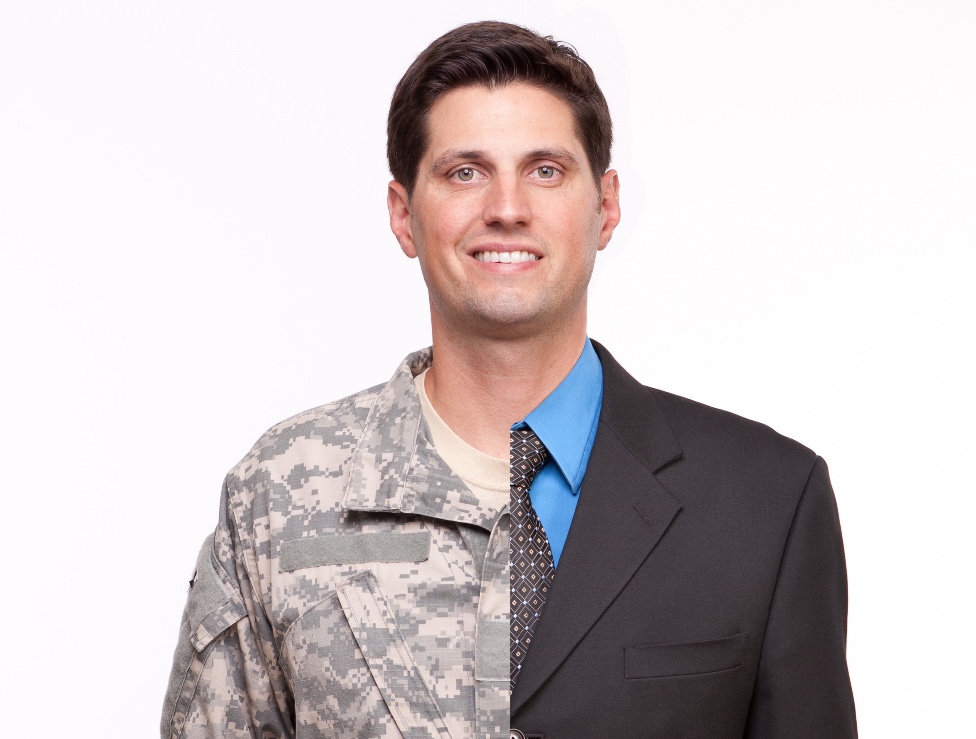
In Service to Veterans

With the United States in a constant state of war over the past 18 years, most people understand that veterans can experience challenges in returning to civilian life. David Sherman, a UC Santa Barbara professor of social psychology in the Department of Psychological and Brain Sciences, is committed to understanding how science can help these former service members.
In the journal Perspectives on Psychological Science, Sherman and his co-authors examine theories from multiple disciplines to spur research that will give practitioners, service providers and industry new tools to serve the needs of America’s more than 20 million veterans.
“What our research sought to do was to examine the relevance of psychological science to this issue of the transition of military veterans to the workplace,” Sherman said. “We think that it can both inform this important social issue, but also studying veterans and their transition can inform the science that we’re all engaged in.”
In the paper — “The Challenges of Military Veterans in Their Transition to the Workplace: A Call for Integrating Basic and Applied Science” — a team in fields as disparate as organizational behavior, social psychology and sociology examined such topics as how people adjust to new cultural environments, how stereotypes affect people’s perceptions of stigmatized groups and how people are impacted by the knowledge of those stereotypes, Sherman explained.
Those topics have been studied among many different groups, he said, but they hadn’t been applied to military veterans in their transition.
“And so what we sought to do in this article is to bring this broader research to the community of psychological scientists,” Sherman said, “and to raise questions about how this can help us understand their transition to the workplace.”
The paper’s co-authors also included Steven Shepherd of Oklahoma State University, Alair MacLean of Washington State University, and Aaron C. Kay of Duke University.
“This work is really exciting,” Kay said. “Especially because, as we get deeper into this domain, we are learning that not only are we able to shed new light on what’s clearly a very important issue, but we also see how testing our theories in this novel domain can change some of our basic assumptions about those very theories.”
As the paper notes, veterans often experience lower levels of employment and earning relative to their civilian co-workers, even if a veteran has similar job qualifications. In a 2020 LinkedIn study of veterans and nonveterans who use the site, the professional networking site found that veteran underemployment — defined as working an hourly wage while holding a bachelor’s degree — has been rising for years.
In 2010, it found, veteran underemployment was about 11% (comparable to nonveterans). By 2019 it had climbed to roughly 34%, while nonveterans held at about 12%.
“This is a complicated problem,” Sherman said. “In our paper, we used statistics like that as a jumping off point to say, ‘What are the different factors?’ Both social-psychological and sociological that can help us explain the experience of veterans and their transition.”
The paper proposes five categories of reasons why veterans have different outcomes than nonveterans in the labor force: trauma during service, self-selection for service, socialization in the military, stereotype threat and discrimination.
Given that the first two factors have been studied extensively, the paper focuses on the latter three as fertile ground for gaining insights into research on behalf of veterans.
“These are topics that have been studied among many different groups,” Sherman explained, “but as of yet had not been applied to military veterans in their transition. And so what we sought to do in this article is to bring this broader research to the community of psychological scientists, and to raise questions about how this can help us understand their transition to the workplace.”
These lines of research line up perfectly with Sherman’s research interests. Previously he studied how people cope with new educational environments, such as moving from elementary to middle school, and how stereotypes can impact that adjustment.
“So it was a natural extension when we started to think about the transition of veterans,” he said. “In addition, I have long been interested in the intersection of basic and applied social psychological research to understand such topics as sustainability, performance of health behaviors, educational inequality, and so this paper provided a great opportunity to survey a new literature and examine what social psychology’s contributions could be.”
Sherman has been working with UCSB graduate students Connor Gibbs and Lauren Ortosky on a series of studies examining how veterans perceive the amount of structure in both the military and in civilian organizations, and how those perceptions relate to their adjustment and feelings of efficacy in the workplace.
“We will continue to develop these and other projects,” he said, “and hope as well to work with local organizations serving veterans at UCSB and in Santa Barbara, as well as more nationally, to share our work, learn from others’ work and experiences, and advance basic and applied knowledge on this important societal issue.”



